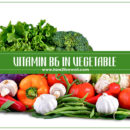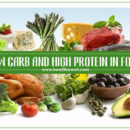Rich Foods in Potassium

Low potassium levels can lead to having aching muscles, an irregular heartbeat, and other symptoms. Getting enough potassium will help with your digestion, as well as the functioning of your muscles. You’ll also be reducing your chance of having a stroke. Bananas often get the credit for having plenty of potassium, but there are other foods that have even more than they do. Avocadoes and apricots are just a few other high-potassium foods you might be lacking.
1. Raw Spinach:
Adding this healthy and flavorful green to your diet is one of the best things you can do for your health. Fortunately, raw spinach is as versatile as it is healthy, so there are many ways to incorporate it into your favorite meals. Mix it up with your eggs at breakfast, toss it in a salad at lunch, or sauté it with sauces and pasta at dinnertime. Add more spinach to your diet and you’ll help your body get the potassium it needs to stay strong and healthy. Serving Size (1 cup), 167 milligrams of potassium (5% DV), 95 calories.
2. White Beans:
White beans are harvested in cultures and climates all over the world. They’re renowned for their fantastic health benefits, and their subtle flavor and easy preparation make them one of the most versatile foods you’ll find. A one-cup serving of cooked white beans accounts for 29% of the daily recommended value of potassium, and adds only 200 calories to your diet. They contain a mountain of other nutrients and minerals, so add more white beans to your plate as part of a healthy diet all around. Serving Size (1 cup, cooked), 1004 milligrams of potassium (29% DV), 200 calories.
3. Sweet Potatoes:
Sweet potatoes contain a variety of vitamins and minerals, and they’re known to contribute to improved health in many ways. Among the benefits is its high potassium content. The average sweet potato is packed with about 15% of the daily recommended amount of potassium, which helps your body fight fatigue, high blood pressure, irritability, and more. If you’re new to sweet potatoes, try them steamed, baked, grilled, roasted, or pureed. However you choose to enjoy them, your body and heart will thank you. Serving Size (1 potato with skin), 542 milligrams of potassium (15% DV), 103 calories.
4. Orange Juice:
Good on you if you start every day with a cold glass of orange juice. And make sure you’re drinking the good stuff: go with the 100% juice varieties or drink it fresh-squeezed. Orange juice is known for its immune-boosting vitamin C, but it’s also a great source of potassium. Just a single cup with breakfast equates to about 14% of your recommended daily potassium intake. So drink up! Serving Size (1 cup), 496 milligrams of potassium (14% DV), 112 calories.
5. Avocado:
Like many fruits and vegetables, avocados are a viable source of the essential mineral potassium. One medium-sized avocado provides your body with about 28% of the potassium it needs for the day. What makes avocados unique from most other fruits, though, is their fat content (don’t worry—it’s the good kind of fat) and their low sugar content. Add avocados to your diet for a potassium boost that doesn’t fill you up with sugar and calories. Serving Size (1 avocado), 975 milligrams of potassium (28% DV), 240 calories.
6. Acorn Squash:
The acorn squash is named for its shape, and this tasty vegetable is as dense with nutrients as it is rich with color. Acorn squash are a great source of vitamins A, C, and B6, in addition to fiber and folate. They’re also a viable source of potassium, with almost 900 milligrams per one cup of cooked acorn squash. For the first-timer, the acorn-shaped squash may seem intimidating, but they’re easy to prepare and can be enjoyed in many ways: try them plain, in soup, or with spaghetti. Serving Size (1 cup cubed), 899 milligrams of potassium (26% DV), 115 calories.
7. Molasses:
Because of its sweet flavor and its use in baking, many people don’t think of molasses as a health food. In moderation, molasses is actually a viable source of several essential nutrients and minerals. One of the benefits of consuming molasses is its potassium content. A single tablespoon of this sweet syrup provides about 8% of the recommended value of potassium for the day. Its low calorie count (about 58 calories in that same tablespoon serving) makes it an excellent substitute for sugar in baking. Serving Size (1 tablespoon), 293 milligrams of potassium (8% DV), 58 calories.
8. Plain Yogurt:
If you’re concerned about getting enough potassium in your diet, eating plain yogurt is a great way to pad your diet with extra potassium, as well as calcium and other vitamins and nutrients. It’s light and it won’t weigh you down, making it an excellent snack that’s quick, easy, and healthy. A cup of plain yogurt provides about 18% of the potassium needed for the day. Try adding fresh fruits and berries to your yogurt to make it a filling and nutrient-rich snack any time of day. Serving Size (1 cup), 625 milligrams of potassium (18% DV), 137 calories.
9. Sun-Dried Tomatoes:
Sun-dried tomatoes are subtly sweet and have a wonderful flavor that goes great on sandwiches, in sauces and salads, and more. Not only are they delicious, but they’re a viable source of potassium, too. A single sun-dried tomato (about 2 grams) provides about 69 milligrams of potassium. Add a handful to your meal and you’ll add a nice boost of potassium, fiber, antioxidants, vitamin C, and more. Serving Size (1 piece, or 2 grams), 69 milligrams of potassium (2% DV), 5 calories.
10. Rice Bran:
Grain products such as rice bran are known to be a viable source of fiber, but many also offer several other vitamins and minerals. In addition to fiber, rice bran is rich in almost every essential vitamin and mineral under the sun, and that includes potassium. Adding a cup of rice bran to your diet can help prevent the symptoms of potassium deficiency, along with lowering your risk for diabetes, high blood pressure, and obesity. Serving Size (1 cup), 1752 milligrams of potassium (50% DV), 373 calories.




